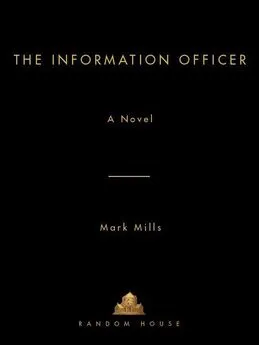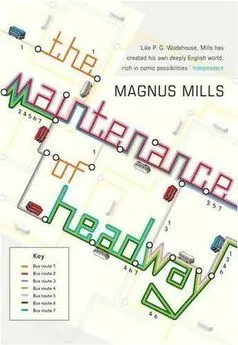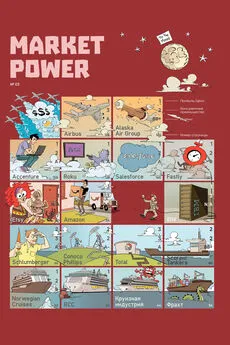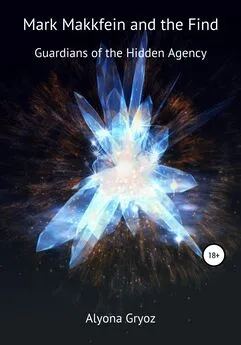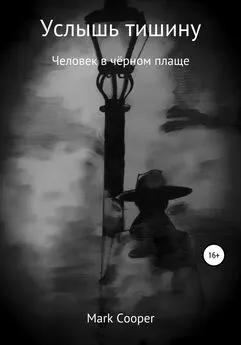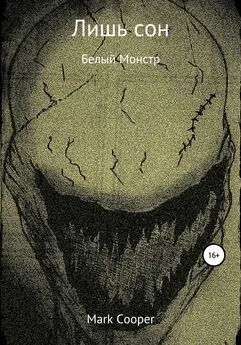Mark Mills - Amagansett
- Название:Amagansett
- Автор:
- Жанр:
- Издательство:неизвестно
- Год:неизвестен
- ISBN:нет данных
- Рейтинг:
- Избранное:Добавить в избранное
-
Отзывы:
-
Ваша оценка:
Mark Mills - Amagansett краткое содержание
Amagansett - читать онлайн бесплатно ознакомительный отрывок
Интервал:
Закладка:
The woman lay on her back beside the sofa, her throat opened to the bone. The man was in the bedroom, slumped in a corner, a bewildered expression on his face, as if still coming to terms with the fact that he was dead. There were several stab wounds in his chest, along with a deep gash in his shoulder. A picture of what had occurred was already emerging, for another man, the gentleman of the house, had survived. Horrifically wounded, Gerald Chadwick had been rushed to hospital, giving officers a sketchy account of the carnage before being sedated for surgery. By noon of the following day his story had been confirmed by a thorough examination of the crime scene. Door-to-door questioning of the other residents of the smart block only lent further weight to it.
The dead man in the bedroom was a neighbor of the Chadwicks, Samuel Kuhn, a wealthy widower, withdrawn and private, but prone to raging outbursts against the other occupants of the building. A feud had sprung up recently over the issue of the Chadwicks’ cat, which Kuhn claimed was fouling the common parts. When the poor animal was found hanging from the Chadwicks’ door handle, the police were called. It was clear from the patrolman’s report that he sided with the Chadwicks—a respectable insurance man and his petite, attractive wife—but he was bound to let the matter drop through lack of evidence. This incident had occurred some two weeks prior to the killings, and in the intervening period Samuel Kuhn had, by all accounts, grown more cantankerous and vocal than ever, accusing anyone unfortunate enough to cross him in the hallway of conspiring against him.
Then one evening he cracked. Taking up a long paring knife from the drawer in his kitchen, he wandered upstairs and vented his spleen on the Chadwicks. He gained access to their apartment on the pretext that he wished to apologize to them, but on entering the drawing room he went berserk, slitting Julia Chadwick’s throat before turning his attention on her husband. Badly wounded, Gerald Chadwick fled down the corridor to the bedroom, where he managed to wrest the knife from Kuhn’s grasp, turning it on him and stabbing him several times in the chest, killing him. Bleeding profusely, Chadwick then called the police from the bedside phone.
It was an entirely plausible account of the horror that had unfolded in the apartment. Analysis of fingerprints, blood distribution and blood-types all supported it. The multiple lacerations to Gerald Chadwick’s palms, forearms and face were concomitant with defense wounds sustained in a knife attack, and would lead to unsightly, lifelong scarring. Moreover, the knife was undeniably Samuel Kuhn’s, one of a matching set discovered in his kitchen.
The Homicide Bureau was satisfied. And this was their case. Had Hollis not been responding to a break-in at a pawnbroker’s when the call came in, he might have got there ahead of them and been able to stake a claim—his precinct, his watch. Unlikely, though. The Bureau detectives would never have allowed a highprofile, open-and-shut case like this one to slip through their fingers without a fight. No, they would have muscled him out, a precinct detective, and a third-grade one at that. Either way, his was always going to be a lone voice of dissent struggling to make itself heard, if only because he couldn’t put his finger on exactly what it was that was troubling him.
All he knew was that he had a sense of unease about the case—an itch, a niggle—something he had seen, heard, imagined? He couldn’t rightly say. His persistence drew hoots of derision from Lieutenant Gaskell, who refused to share Hollis’ misgivings with the Homicide Bureau. Gaskell was an incompetent, a man who had made lieutenant before they required you to sit an exam, but he was no fool. He had his record to think of.
The night before the crime scene was due to be cleaned up, Hollis gained access to the apartment, spinning some yarn to the uniform on duty at the door. He wandered the rooms and corridors deep into the night, working every angle he could think of. No idea was too preposterous; and not one of them bore fruit. He was smoking his last cigarette, pacing through the events of that evening one final time, when it hit him. It was almost as if it had teased him enough and out of pity had decided to reveal itself to him. One moment it wasn’t there, and then it was, as it had always been, since that first day. He dropped to his hands and knees in the corridor, peering at the wooden floor.
Gerald Chadwick maintained that he had fled down the corridor in fear of his life, hotly pursued by a knife-wielding maniac. The spots of blood on the floor were indeed Chadwick’s—that much had been established—but if he’d been traveling at anything more than a walking pace, the impact pattern of the drops would have betrayed this fact, with jagged, toothlike projections extending forwards.
The uniform, almost perfectly circular shape of the drops in the corridor suggested that Gerald Chadwick had in fact been strolling towards the bedroom.
In one blow, it was now possible to construct an altogether different scenario for the evening in question: Gerald Chadwick somehow luring Kuhn to the apartment, Gerald Chadwick slitting his wife’s throat in the drawing room, Gerald Chadwick slashing himself with the knife then calmly trailing his terrified guest down the corridor to the bedroom.
Why? It didn’t matter. That would follow. Gerald Chadwick had lied, and to Hollis’ mind that suggested Gerald Chadwick was guilty of murder.
Two hours after his arrival at the Homicide Bureau headquarters on Centre Street, and following further examination of the bloodstains, Harry Beloc, the Chief of Detectives, announced that Hollis might be on to something. By now, word had filtered through to Lieutenant Gaskell, who showed up in Beloc’s office, backing his boy, and keen to point out that he’d done so from the very first. He changed his tune when Hollis suggested they go straight for a confession.
‘Gaskell, shut the hell up,’ Beloc had snapped. ‘This could be your meal ticket. Might even get your name in the Daily News. ’ Beloc had made up his mind by the time the laughter subsided. He handled the matter himself, paying Chadwick a visit in his recovery room at Bellevue Hospital. Chadwick crumbled under questioning. Too weak to be moved, he spent that night in the hospital, but two floors down—in the Department of Correction’s prison ward.
The story made the front pages, and Lieutenant Gaskell did indeed get his mention in the Daily News. Hollis didn’t. That was okay, though; it was the way things worked. Besides, those who mattered knew that the breakthrough clue and the subsequent strategy had been his. Three months later, he was promoted to detective second-grade, which meant an extra two hundred dollars a year. Lydia celebrated by promptly spending a sizable portion of this sum on clothes. They dined out on Broadway, the ‘Great White Way’ unnaturally dim and moody because of the wartime blackout restrictions, and they toasted their future with an overpriced bottle of French Champagne.
There was cause for real cheer: Hollis had turned a corner in his career. Gaskell had already pulled him off the petty larcenies—the sneak thieves, pennyweighters and pickpockets—and if he continued to make the Lieutenant look good on the bigger cases he might even get a call from the Homicide Bureau in a year or two. He hadn’t seen or heard from the Chief of Detectives since that day in his office, but he knew Beloc had registered his existence.
But if Hollis felt good, it wasn’t so much for his growing status—Lydia was covering that base—as the fact that he was beginning to believe he might actually have a gift for detective work, a nose.
So young, so earnest, so thoroughly self-absorbed that he hadn’t even noticed his enemies already ranging themselves against him in the shadows of his victory, his vainglory.
Hollis waited until the mourners dissipated, heading for their cars, before making his move.
‘Mr Penrose?’ he said, approaching from the rear.
Getting the name had been easy, requiring no more than a casual exchange with the chauffeur; figuring where he’d heard it before had taken a little longer. He’d found it eventually, scrawled in the memo pad amongst the notes taken at his first meeting with the maid, Rosa: Lillian W. moves to East Hampton in January following split from fiancé (Penrose).
‘Yes?’
‘Justin Penrose?’
‘That’s right.’
‘It’s about Lillian Wallace. I have a few questions.’
‘Questions?’ frowned Penrose.
‘You knew Miss Wallace well.’ It was a statement, not a question.
‘We were together for a time if that’s what you mean. Why?’
‘I believe you were engaged, no?’
‘Yes.’
‘When was the last time you saw her?’
‘I don’t know, a month or two ago.’
‘Up here?’
‘Look, what’s this all about?’
‘In East Hampton?’
‘Yes, in East Hampton.’
‘This was the time you went swimming with her off the ocean beach.’
Penrose visibly stiffened. ‘You know,’ he said firmly, ‘I really don’t think I have time for this right now.’
‘Of course. We can do it later if you want.’
Penrose glanced around him. Cars were beginning to pull away from the verge, making for the reception at the Wallaces’ house. He turned back to Hollis, resigned to having the conversation.
‘How did she appear to you?’
‘Well, a lot better than just now.’ Embarrassed by his flippancy, Penrose added solemnly, ‘Look, she seemed well. Very well indeed.’
‘Were you worried about her? I mean, her leaving the city, coming up here over the winter?’
‘Yes, I was worried about her. We all were. But as I say she seemed very well, much better.’
‘Do you mind me asking why you broke off your engagement?’
Penrose weighed the question. ‘As a matter of fact, I do. I don’t see that it’s any of your business. In fact,’ he added, ‘what is your business?’
‘I’m just trying to get a picture of her state of mind. It’s routine in cases of unattended deaths.’
That phrase again.
‘What are you saying?’ asked Penrose. ‘That you think she took her own life?’
‘Oh no, Mr Penrose, I know she didn’t.’
This was the moment he had been heading for. A guilty man would recognize it for what it was: Hollis laying down his hand. Penrose’s expression was impossible to read. A poker player, no doubt about it. And a good one.
‘Then why are we having this talk?’ said Penrose.
‘Like I say, it’s just routine. Thank you for your time.’
Hollis stood his ground, waiting to see if Penrose glanced back at him before climbing into the limousine.
He didn’t.
But Hollis did see Bob Hartwell observing him from down the far end of Cooper Lane. He turned away when Hollis caught his eye.
Thirteen
Conrad glanced at his watch. Unless they were running late, they’d be putting her in the ground about now. He had no difficulty picturing the scene, because he’d passed by the cemetery the previous day.
It was a large plot, shaded, pleasingly so, the earth heaped up beside the fresh hole. She would have approved of the headstone, nothing too ostentatious, no ornamental frills, just her name, date of birth and date of death carved into some kind of pale stone, softer than marble. He had frowned as he did the calculation. Twenty-six years old. She had lied to him about her age, adding two years. Why?
He had struggled with the question then, and he did so again now as he lay curled on his bed, fully clothed.
Читать дальшеИнтервал:
Закладка:

